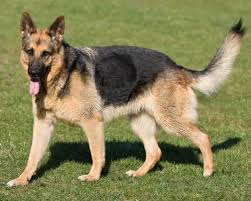Can a dog recover from pneumonia? With treatment dogs generally recover well from pneumonia, but if the condition is left untreated symptoms may become severe and serious complications can develop.
What are the chances of a dog surviving pneumonia? Survival rates are 77–82% (Kogan et al, 2008, Tart et al, 2010) in mild cases, but when aspiration pneumonia develops into acute respiratory distress syndrome (ARDS), or the patient requires mechanical ventilation, survival rates decrease (Balakrishnan et al, 2017) ().
How do you treat pneumonia in dogs? Typical pneumonia in dogs treatment includes: Restricting your dog’s activities while they recover. Keeping other pets and small children away from your dog in order in order to allow them to get plenty of rest. A consistent supply of fresh water to help keep them hydrated.
How does a dog catch pneumonia? Causes of Pneumonia in dogs
Viral infections can easily spread from dog to dog) Aspiration (when a dog inhales food, liquid or solid material into its lungs – often seen in a dog that has vomited) Inhaled irritants (smoke, air pollutants, aerosol sprays and more)
Can a dog recover from pneumonia? – Additional Questions
What are the 4 stages of pneumonia in dogs?
Almost all cases of pneumonia are caused by viral or bacterial infections.
The 4 stages of untreated lobar pneumonia are:
- Stage 1: Congestion.
- Stage 2: Red hepatization.
- Stage 3: Grey hepatization.
- Stage 4: Resolution.
What are the 4 stages of pneumonia?
Stages of Pneumonia
- Stage 1: Congestion. During the congestion phase, the lungs become very heavy and congested due to infectious fluid that has accumulated in the air sacs.
- Stage 2: Red hepatization.
- Stage 3: Gray hepatization.
- Stage 4: Resolution.
Is pneumonia contagious from dog to dog?
Is Pneumonia Contagious in Dogs? As with canine influenza, you’re not likely to contract pneumonia from your dog. However, bacterial and viral pneumonia can be transmitted easily between dogs, especially if they are very young, older, or have a compromised immune system.
Can dog pneumonia transfer to humans?
There is no possible transfer of pneumonia from dog to owner. However transfer of both bacterial and viral pneumonia is possible from dog to dog. Elderly dogs, puppies, and those with a compromised immune system are at a higher risk of catching pneumonia from another pet.
What does a dog with pneumonia sound like?
A hallmark sign of pneumonia is a deep, soft cough that may not be productive, meaning your pet may or may not cough up mucus. The lung sounds of pets with pneumonia may sound loud and harsh or may be soft, as air is not circulating through areas of lung tissue affected by pneumonia.
Can dogs get pneumonia from kennel cough?
Kennel cough usually results in mild symptoms, mild or no pneumonia, and it resolves within 5 to 7 days. Severe symptoms in combination with poor appetite could indicate pneumonia, or inflammation and consolidation of the lung tissue, a complication of kennel cough.
What is the best antibiotic for pneumonia in dogs?
Since the results of culture and sensitivity testing will not be available immediately, your veterinarian may begin treatment with a broad-spectrum antibiotic, such as doxycycline (Vibramycin®) or amoxicillin (Amoxi-Tabs®, Amoxi-Drops® or Robamox®), while awaiting the test results.
What do you feed a dog with pneumonia?
Dogs with pneumonia will often not want to eat, but good nutrition is important in helping them recover. Techniques such as warming up the food and offering extra smelly canned or baby foods may be used to entice a pet to eat. There are also medications to stimulate their appetite.
How do I know if my dog has fluid in his lungs?
The symptoms of pulmonary edema will vary based upon the underlying cause of the condition, however the most common symptoms in dogs include:
- Coughing.
- Difficulty breathing.
- Crackling noises when taking a breath.
- Open mouth breathing.
- Wheezing.
How do I know if my dog is dying?
The Telltale Signs a Dog Is Dying
- Prolonged Lethargy/Disinterest. This is the most common sign that the dying process has begun.
- Stops Eating/Drinking.
- Loss of Coordination.
- Incontinence.
- Labored Breathing.
- Seeking Comfort.
Will fluid in dogs lungs go away on its own?
How is cardiogenic pulmonary edema treated? If heart disease is causing the buildup of fluid in your dog’s lungs, your vet can prescribe diuretics to help eliminate the fluid. Your dog will also need rest and oxygen therapy. Due to the chronic nature of heart disease, pulmonary edema may recur.
How do you clear a dog’s lungs?
Coupage is performed by striking the chest gently but firmly with cupped hands. This action helps loosen secretions trapped in the lower airways, allowing them to be more effectively cleared by coughing.
What can you do to help a dog breathe better?
Home remedies for dog breathing problems
- Stay out of hot and humid environments. Dogs don’t sweat like we do, meaning they are more prone to breathing problems caused by hot and humid climates.
- Reduce excitement or exercise.
- CBD.
- Antihistamines.
- Sterile Nasal drops.
- Purchase an oxygen mask for dogs and tank.
Can dogs get pneumonia from cold weather?
YES! Cold weather causes problems for dogs just as it does for their owners. Pooches rely on their respiratory system to stay warm. When the air is icy, their bronchial tube can constrict, which can turn a normal infection into pneumonia!
How long does it take for aspiration pneumonia to develop in dogs?
It can take 12-24 hours for abnormal sounds to develop in the lungs and for x-rays to show signs. Often, a climbing temperature is the earliest reliable sign.
How can you tell the difference between aspiration pneumonia and pneumonia?
Definition. Pneumonia is inflammation (swelling) and infection of the lungs or large airways. Aspiration pneumonia occurs when food or liquid is breathed into the airways or lungs, instead of being swallowed.
How do I know if my dog has aspiration pneumonia?
Symptoms of aspiration pneumonia include breathing difficulties, swallowing difficulties, coughing, fever, discharge from the nasal passages, rapid breathing, increased heart rate, a bluish tinge to the skin (cyanosis), and a possible intolerance to exercise due to weakness.




